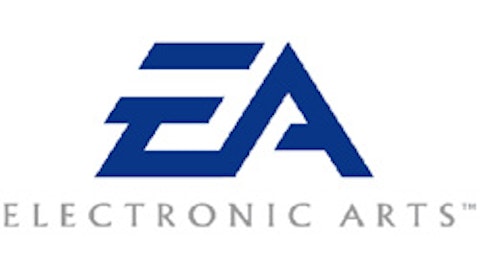A few weeks ago, Chinese company Shuanghui International announced a $34 per share bid for Smithfield Foods, Inc. (NYSE:SFD), a large producer of pork and other meat products. The stock had been trading at about $26 prior to the announcement, so this takeover price represented a substantial premium for shareholders. However, activist Jeffrey Smith’s Starboard Value has not been impressed. The fund recently filed a 13D with the SEC, reporting a position of nearly 8 million shares or 5.7% of Smithfield Foods, Inc. (NYSE:SFD). In a letter accompanying the 13D, Smith and his team argued that Smithfield management should pursue a breakup of the company rather than a sale. A breakup of the company, including sales of some of the pieces, could end up valuing the company at around $50 per share according to Starboard’s analysis.
We track quarterly 13F filings from hundreds of hedge funds such as Starboard as part of our work researching investment strategies (for example, we’ve found that the most popular small cap stocks among hedge funds outperform the S&P 500 by an average of 18 percentage points per year). Our database shows that Starboard initiated a position of 375,000 shares in Smithfield Foods, Inc. (NYSE:SFD) in the first quarter of this year (see more of Smith’s stock picks). This suggests that the activist fund likely was planning to build a stake and push management to break up the company. In addition to Starboard, other filers we track who owned Smithfield at the end of March included billionaire Steve Cohen’s SAC Capital Advisors (find Cohen’s favorite stocks).

For purposes of comparison, Hillshire Brands Co (NYSE:HSH) and Hormel Foods Corporation (NYSE:HRL) trade between 8 and 10 times trailing EBITDA.
This leads Smith and his team to conclude that Smithfield is currently undervalued at least based on this sum of the parts valuation. The stock also looks cheap if we compare analyst expectations for the forward fiscal year between these three companies: Hillshire and Hormel are each valued at 18 times forward earnings estimates, while the forward P/E for Smithfield is only 11. While these companies do have different fiscal year ends, it suggests that even at its current acquisition-anticipating levels Smithfield Foods, Inc. (NYSE:SFD) could also be considered undervalued in terms of earnings per share. Its revenue rose 4% in its most recent quarter compared to the same period in the previous fiscal year- in line with these two peers- although net income did decline considerably in percentage terms.
Other producers of meat products include Tyson Foods, Inc. (NYSE:TSN) and Pilgrim’s Pride Corporation (NYSE:PPC). We’d note that these two companies focus on chicken, though Tyson is at least a somewhat general meat provider. Pilgrim’s Pride has actually been growing its business: revenue grew 8% in the first quarter of 2013 versus a year earlier, with earnings rising 39%. Tyson, meanwhile, had experienced much more moderate revenue numbers coupled with a drop in net income. The forward P/Es here are in the 9-10 range, and so while there is a difference in product mix we’d wonder if they’d make even better values than Smithfield.
Pilgrim’s Pride, in particular, may offer an attractive combination of low earnings multiples and decent growth going by recent reports, and it looks like an interesting target for further research. Starboard does seem like it may be onto something with Smithfield however: while the sum of the parts valuation is the key part of the thesis and would need to be tested further, in terms of forward earnings estimates it also appears that a breakup could create more value for shareholders than the current deal.
Disclosure: I own no shares of any stocks mentioned in this article.






